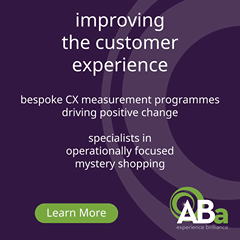Interview: Vivek Ganotra, CEO of THG Ingenuity
In the aftermath of Covid-19, the direct-to-consumer (DTC) channel should be a focus of brands and retailers not just for generating incremental sales but also for brand-building and reinforcing the relationship with customers.
Vivek Ganotra, CEO of THG Ingenuity – that supplies an e-commerce platform solution, acknowledges that DTC has been seen rather too one-dimensionally, especially by retailers, as just a driver of sales but believes there is increasing recognition that it can add other upsides to businesses.
Rethinking DTC
“Brands are coming out of Covid-19 and now talking strategically about DTC. They’ve learnt it is really relevant for future growth. The conversations we’re having with CMOs (Chief Marketing Officers) is about the acquisition, conversion, and retention of customers. It’s a marketing conversation at board level. DTC is seen as a key ingredient of the equation,” he explains.
For THG Ingenuity Ganotra says there are three strands to the business that comprise: focusing on THG’s anchor e-commerce businesses within the beauty and nutrition categories; adding DTC channels for FMCG brands that compliments their B2B activities; and re-platforming the e-commerce operations of retailers.
One of the problems for companies of all descriptions has been the organisational silos that have built up. “One of the ingredients to succeed is the breaking down of these silos. It’s a challenge because there are these separate brand teams, supply chain teams and tech teams,” he says.
For the brand owners there is the additional issue that they are fundamentally b2b manufacturers so dealing directly with the end consumer is a new dimension that requires different skill-sets. Over the last couple of years the likes of Coca Cola, Mondelez and Nestle have been grappling with this challenge as they have looked at how best to approach DTC.
Boosting engagement
For Coca Cola the focus has been on using DTC as a test-bed ahead of releasing products into the retail market. “Releasing limited editions [via DTC] gives consumer insights from testing and learning. It gets them good engagement through DTC, which is relevant for these big brands. It gives brand amplification and A/B testing that enables them to see trends and to rapidly grow,” he says.
As these medium and large organisations look to accelerate their activities in this area Ganotra says cost remains a key aspect and the conclusion for some companies is to partner with THG Ingenuity. There are also cases where they have overestimated their own abilities to deliver on their growing DTC objectives.
By tapping into the THG Ingenuity capabilities – which he calls a “superhighway for brands” – they will have access to specialists in areas including marketing, fulfilment and creative. These aspects are becoming increasingly attractive to brands and retailers as such skills are proving hard to find in the market. There is also the need for businesses to continuously keep on top of the upgrades to systems, which drains their investment budgets and resources.
Flexible approach
He can also foresee a situation where THG Ingenuity could potentially some years down the line hand back some of the capabilities to the brands it has been working with for them to then deal with it in-house. He cites Nike and Adidas that have committed lots of investment to “build a lot of DTC capabilities” within their organisations.
As well as brands moving into DTC there is also the scenario of retailers who have developed e-commerce divisions but they want to move onto the next levels. “We’re finding retailers have pain points and there is a lot of Band Aid being used to hold things together but this limits future growth. They are saying it is increasingly hard and they need to re-platform,” he explains, adding that working with a specialist partner can help them on this journey.
Such actions need to be done in conjunction with retailers’ other channels as the integration between them is absolutely paramount. Ganotra points to Matalan that has developed a multi-channel operation including offline, marketplace and the DTC channel from THG Ingenuity. “It’s very hard to manage the journey across these channels. It’s hard but is highly strategic,” he says.














